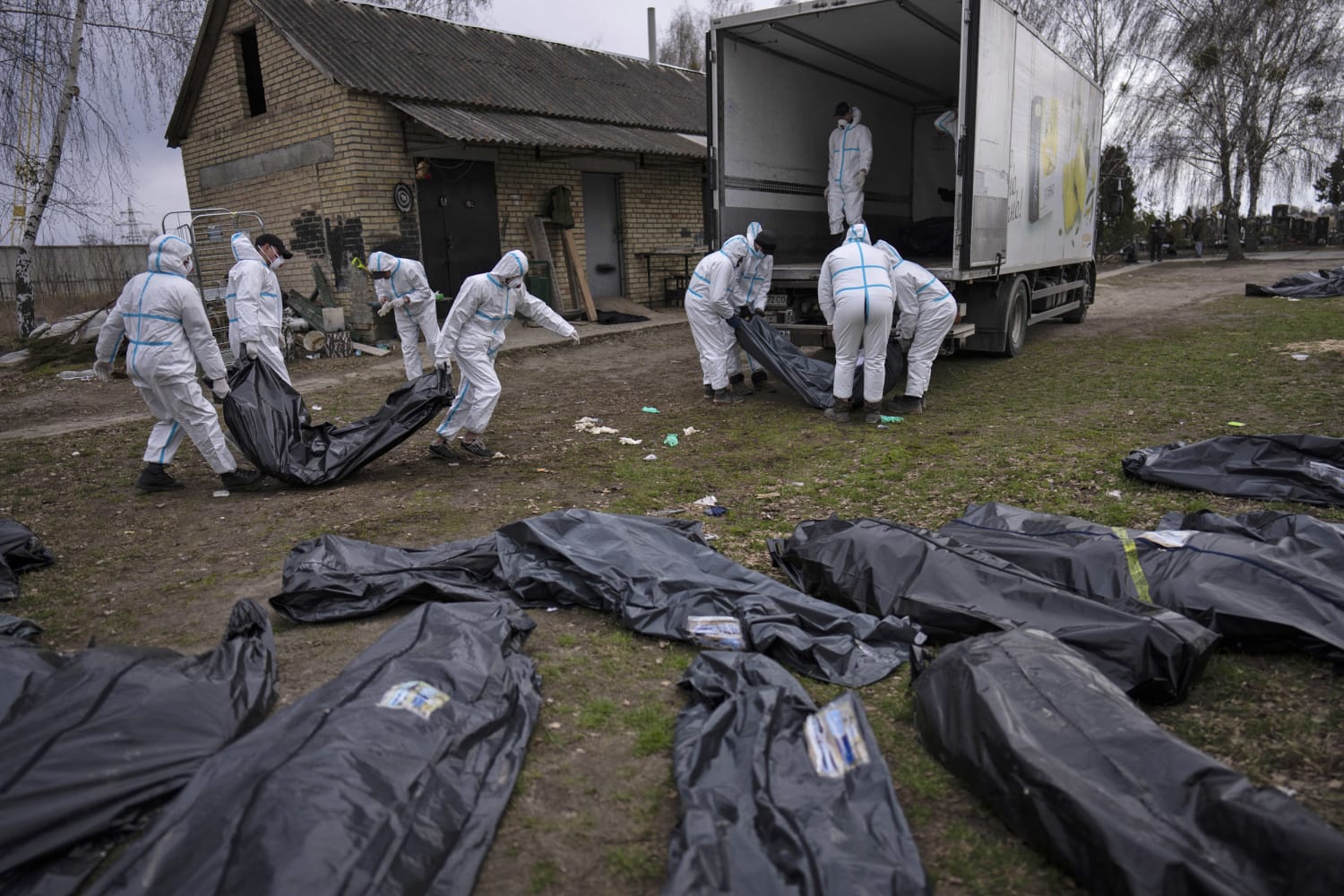As Russian soldiers withdrew from the Kyiv suburb of Bucha, surviving Ukrainian citizens emerged to tell harrowing stories of sadism and cruelty. According to these eyewitnesses, Russian soldiers raped dozens of women in the town — and many of the women reportedly did not survive. Anyone reading these stories or hearing women’s testimony on news reports would be rightfully horrified and appalled. President Volodymyr Zelenskyy has called forcefully for a war crimes investigation.
And meanwhile, the war rages on in other neighborhoods, putting other civilians at similar risk.
Anyone reading these stories or hearing women’s testimony on news reports would be rightfully horrified and appalled.
As a historian who has spent decades thinking and writing about sexual violence and coercion, I, too, am horrified. But perhaps unlike many learning of these atrocities, I am sadly unsurprised by both the commission of rape in wartime and the particular ways that such reports have made the news.
Rape has been used as a tool of conquest for centuries. The founding of Rome in the 8th century B.C. has lived on through famous large artworks depicting Romans killing Sabine men and raping Sabine women. Some of the earliest European explorations of the Americas included sexual violence against Indigenous women. Christopher Columbus “gave” one of his lieutenants, Michele de Cuneo, a kidnapped Indigenous woman. De Cuneo proudly recorded how he whipped, raped and subdued her. Similarly, European men who kidnapped African people into slavery regularly allowed the “sailors to take the African women and lie upon their bodies.’’ Rape has long been a way for men to express their power of mastery over others.
Unfortunately, such abuses of women are not limited to distant history. So-called comfort women were kidnapped from Korea and other parts of the Japanese empire and forced into sexual slavery by the Japanese military in World War II. Pakistan’s military raped hundreds of thousands of Bengali women and girls in the Bangladesh war for independence. During the Rwandan genocide in 1994, Hutu militia groups and their supporters raped thousands of Tutsi women and girls. Bosnia, Kosovo, Sri Lanka, Sierra Leone and far too many more. The list is depressingly and seemingly endless.
In recent decades, feminist activists have advocated successfully for institutional recognition that sexual violence in nation-state conflicts constitutes a human rights violation. In 2013, the United Nations General Assembly endorseda “Declaration of Commitment to End Sexual Violence in Conflict.” The U.N.’s International Criminal Tribunal has prosecuted conflict-related sexual violence crimes, including in Rwanda and the former Yugoslavia, and the court has fast-tracked an investigation into possible war crimes in Ukraine.
But these courts can only do so much. And rape remains an enduring tool of war. Scholars have proffered analyses of underlying factors that may characterize various formulations of sexual violence in military conflicts. Sex is a powerful communicative act: It can create families and solidify personal connections and hierarchies. In patriarchal societies throughout history, having sexual access to women confirms men’s authority. Sexual violence in wartime signals the invader’s attempt to claim power as the new patriarchal ruler.
Understanding that rape in wartime is an act of power with a pointed message also helps explain why particular stories of rape in wartime make front page news. But we should always keep in mind the many rapes that do not produce international headlines: the ones that girls and women do not feel safe sharing; the wartime rapes in non-Western countries that often receive far less global attention; the sexual abuse of men and boys that do not become public due to fears of stigmatization in relation to particular notions of masculinity.
Not surprisingly, the stories of sexual assault we do hear about often indicate geopolitical narratives about who is “right” and who is “wrong” in conflict. From victims’ perspectives, invaders who rape show themselves to be illegitimate political rulers by virtue of their perversion of power. In Ukraine, rape by Russian military members is a grievous wrong that confirms the illegitimacy of the entire invasion.
Ukraine’s ombudsman for human rights reported that not only did Russian forces hold dozens of Ukrainian girls and women as sexual slaves, the soldiers also said they hoped that as a result their captives would recoil from sex in the future and thus not bear Ukrainian children. That is genocide wrapped in gender-based sexual violence. The soldiers could have killed the women and girls to prevent reproduction. But they chose to inflict sexual harm as a sign of their power.
Sexual violence has been a powerful message in wartime, largely committed by men and at the expense of victimized women, throughout history. Unfortunately, the Russian invasion of Ukraine appears to be continuing that horrific tradition; it is already being called “one of the worst large scale campaigns of sexual violence” in recent years. We should be outraged by the stories of torture, abuse and murder. We should push for international attention and redress. And we should remember that rape can become a tool of war because of what it represents beyond cruel individual acts. Rape has long been understood as a way for men to express their power vis-a-vis other men. As long as men’s sexual access to women is taken as a sign of mastery and power, we will continue reading headlines of horrors.
Source: | This article originally belongs to Nbcnews.com











